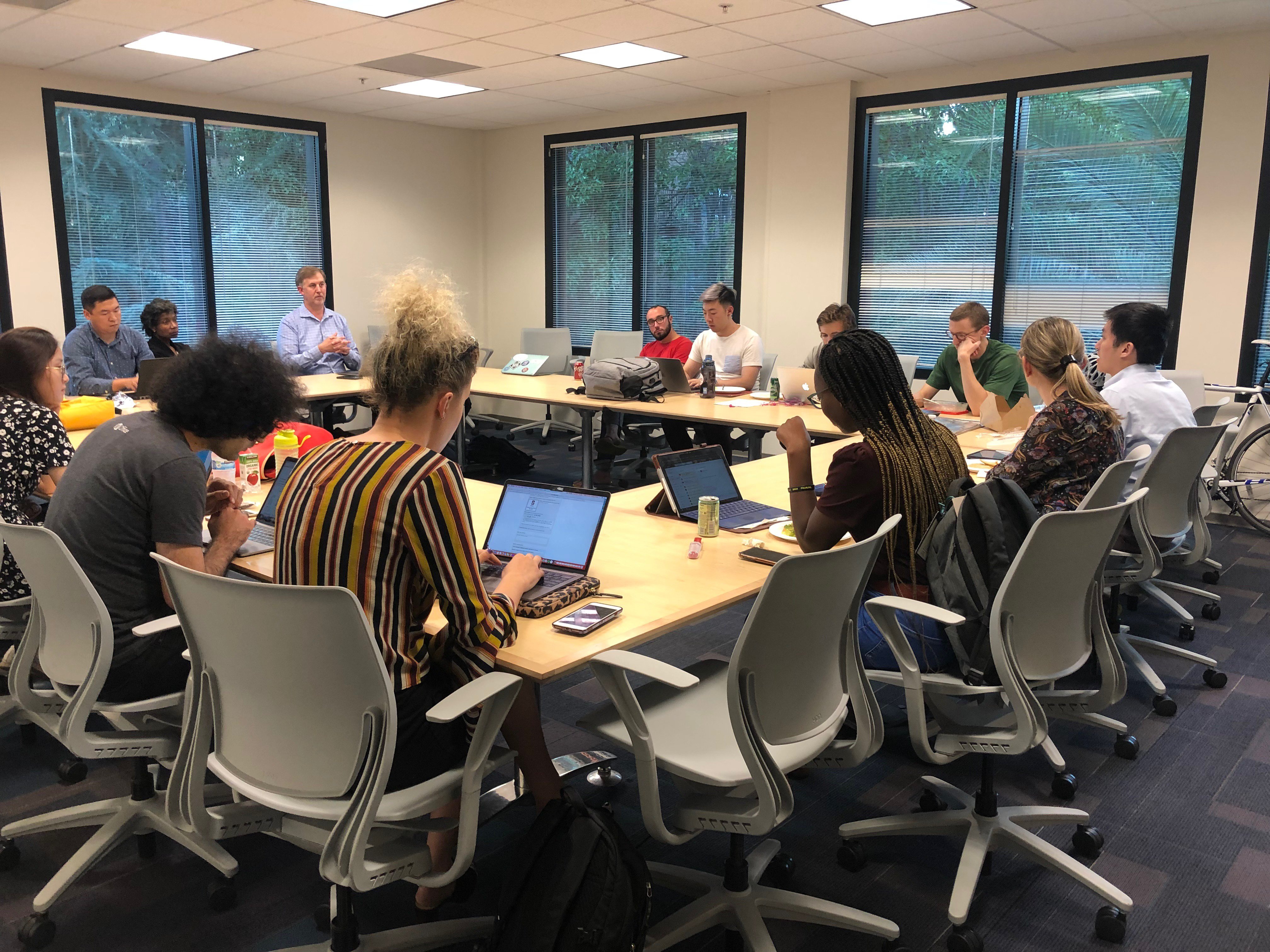After months of debate over potential solutions to combat graduate food insecurity, the first Graduate Student Council (GSC) meeting of the academic year included reflection on recent developments the Council has supported. From a pilot program for a popup food bank to changes to Stanford dining policies, the Council discussed progress made and plans to carry forward its advocacy.
Dining updates
The GSC discussed its ongoing partnership with Stanford Residential and Dining Enterprises (R&DE) and the Second Harvest of Silicon Valley food bank, part of a combined effort between the Council and R&DE to address campus food insecurity. The food bank came to campus for the second of three set pilot dates on Monday, and R&DE noted that the popup served 405 people — significant growth from the 158 served at the Aug. 26 launch.
Eric Montell, Stanford Dining’s executive director, said plans are being made to continue the pilot given its early success, including additional support for graduate students who stay on campus during winter break.
Montell also discussed recent changes to the R&DE dining program, highlighting the restoration of graduate student access to the Wilbur and Lakeside dining halls. The update was announced in an email on Wednesday.
R&DE worked with members of the Associated Students of Stanford University (ASSU), including the GSC, to “look at how to have options for students balancing out both the needs of undergrad and grad, and making sure in this context that grad [students] have access to all of the dining halls this year,” Montell added.
Graduate students had called for this access throughout the 2018-19 school year, as the restrictions limited their ability to eat at dining halls that served High Performance Education (HPE) meals to undergraduates. Forbes Café will also end its temporary dinner service, which was instituted amid graduate complaints of limited dining access.
In an additional effort to counter food waste and graduate food insecurity, Stanford Food Recovery (SFR) member Nancy Chang ’20 introduced ideas for an SFR pilot program that picks up surplus food from self-ops and co-ops. The volunteer group is looking for ways to donate the food — which will need to have been prepared at most two days before being picked up — to an area accessible to the graduate community.
Pending resolutions
The Council discussed two resolutions on previous notice: the “Resolution to Condemn the Noose Incident and Urge Further Action From Administration” and the “Resolution to Institute Universal Student Voter Registration.” Both resolutions will be voted on at the next meeting.
The voter registration resolution calls for creation of an Axess course enrollment hold that would not be lifted for any student until they either agree or decline to register to vote. This type of mandatory choice system has been recently implemented at the University of Chicago and Harvard, which have seen voter registration totals increase significantly, according to the resolution.
In its condemnation of the noose incident, the Council criticized the University’s belated response to the noose spotted outside Columbae on the Row this summer. It calls for Stanford to “explicitly record these events as instances of racism/hate speech and to legitimately sanction the individuals and/or groups that are responsible for these acts.” It also requests that all affected communities be represented in actions against similar hateful incidents.
The resolution critiques the University response, which materialized in the form of “Notes from the Quad” blog posts, regarding previous events on campus that have targeted marginalized communities. The resolution argues that these “statements from Stanford have taken the place of action and accountability,” which “emboldens racists and leads to more explicitly violent actions (for example a noose being hung).”
Contact Emma Smith at esmith11 ‘at’ stanford.edu.
